What is Junior Kindergarten? Unveiling the Secrets for a Successful Start
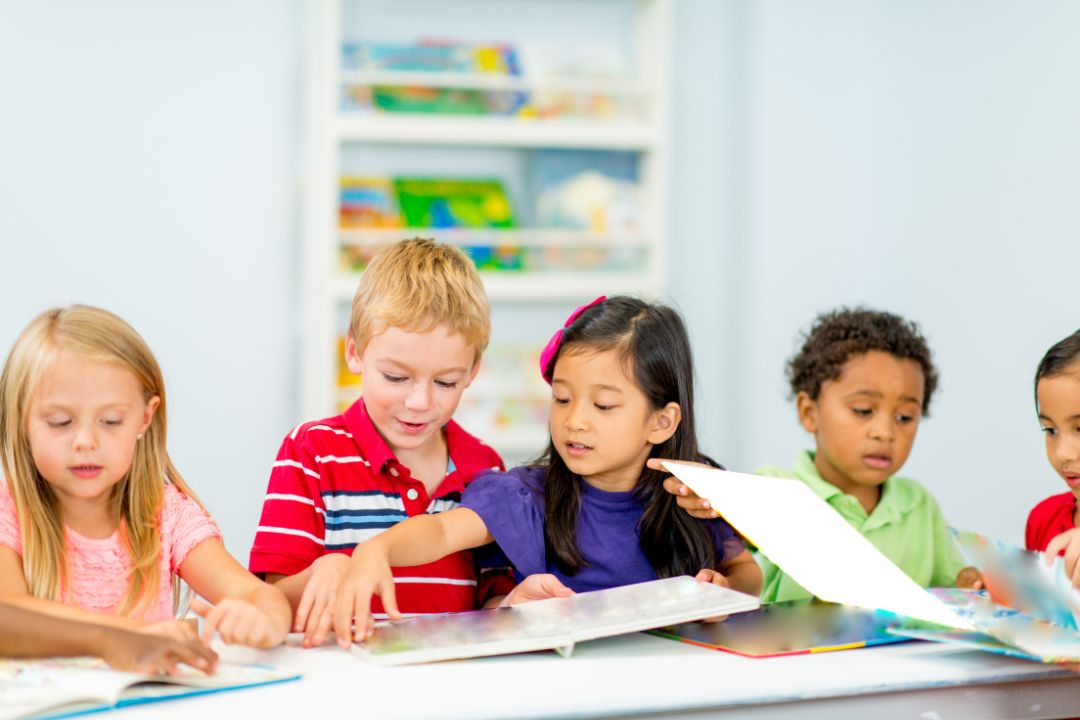
Junior Kindergarten is a specialized educational program designed to prepare young children for formal schooling. In this program, children engage in age-appropriate activities that focus on their physical, cognitive, social, and emotional development.
Junior Kindergarten, also known as JK, is an essential stepping stone in a child’s educational journey. It aims to provide a solid foundation for young learners, equipping them with the necessary skills and knowledge to succeed in future educational endeavors.
Designed for children aged around four or five, junior kindergarten focuses on holistic development, targeting the physical, cognitive, social, and emotional aspects of a child’s growth. Through a variety of age-appropriate activities, these young learners engage in a stimulating environment that nurtures their curiosity, creativity, and problem-solving abilities. Let’s delve deeper into the world of junior kindergarten and explore its significance in shaping the future of our little ones.

Unveiling Junior Kindergarten Basics
Junior Kindergarten, also known as Pre-K or Pre-Kindergarten, provides foundational learning for children before entering Kindergarten. This early education program focuses on social, emotional, cognitive, and physical development through age-appropriate activities, preparing children for a successful transition into elementary school.
Essence Of Junior Kindergarten In Early Education
Junior Kindergarten, also known as Pre-K or Pre-Kindergarten, plays a vital role in a child’s early education journey. It serves as an essential stepping stone between early childhood and formal education, preparing young minds for the challenges ahead.
Junior Kindergarten provides an environment that fosters growth and development through various educational activities, play-based learning, and social interaction. Its essence lies in creating a solid foundation for children, ensuring they are well-equipped with the necessary skills and knowledge before transitioning to senior kindergarten.
Core Differences Between Junior And Senior Kindergarten
Junior Kindergarten and Senior Kindergarten share similarities, but there are distinct core differences that set them apart. While both focus on cultivating a child’s social, emotional, cognitive, and physical abilities, the main contrast lies in the depth and complexity of the curriculum.
In Junior Kindergarten, the emphasis is on learning through play, sensory experiences, and hands-on activities. Children engage in age-appropriate tasks that boost their critical thinking, creativity, and problem-solving skills. On the other hand, Senior Kindergarten introduces a more structured academic approach, laying the groundwork for formal education.
Typical Age Range For Junior Kindergarten Starters
The typical age range for Junior Kindergarten starters varies, but it generally includes children who are four or five years old. However, this can depend on specific educational policies and individual child development. Junior Kindergarten caters to children who have reached an age where they are ready to expand their knowledge, engage in group activities, and begin their academic journey.
The Junior Kindergarten Curriculum
In this section, we will explore the Junior Kindergarten curriculum and its key elements. Junior Kindergarten is a crucial phase in a child’s early education, setting the foundation for future learning and development. The curriculum for Junior Kindergarten is designed to provide a nurturing and stimulating environment that fosters growth, creativity, and learning.
Overview Of Curriculum Structure
The Junior Kindergarten curriculum follows a well-structured framework that encompasses various domains of a child’s education. This structured approach ensures that children receive a comprehensive education across multiple areas of development. The curriculum focuses on nurturing children’s social, emotional, physical, and cognitive skills, preparing them for a smooth transition to higher grades.
Key Learning Areas And Milestones
Throughout the Junior Kindergarten program, children engage in a range of key learning areas to support their overall development. These learning areas are carefully designed to enhance different skills and build a strong foundation for future academic success. Some of the key learning areas in the Junior Kindergarten curriculum include:
- Language and Literacy Development
- Mathematics and Numeracy
- Science and Discovery
- Physical Education and Gross Motor Skills
- Social and Emotional Development
- Creative Arts and Expression
Within each learning area, specific milestones are set to ensure children progress in their learning journey. These milestones serve as benchmarks for educators to gauge each child’s development and provide targeted support when needed. By focusing on these key learning areas and milestones, the Junior Kindergarten program ensures that every child’s unique abilities and needs are met.
Role Of Play In Junior Kindergarten Programs
Play is a fundamental component of the Junior Kindergarten curriculum as it promotes active learning and stimulates children’s curiosity and imagination. Junior Kindergarten programs recognize the crucial role of play in children’s development and embed it throughout their daily activities. Play-based learning not only enhances children’s cognitive abilities but also supports their social, emotional, and physical growth.
Through different types of play, such as imaginative play, cooperative play, and sensory play, children learn to solve problems, communicate effectively, develop empathy, and refine their motor skills. Educators facilitate play experiences that encourage children to explore, experiment, and discover new concepts. Play not only makes learning enjoyable for children but also ensures that they actively participate and retain information.
| Benefits | Explanation |
|---|---|
| Enhances creativity and imagination | By engaging in pretend play, children can express themselves creatively and develop their imaginative thinking. |
| Promotes problem-solving skills | Play-based activities provide opportunities for children to encounter challenges and develop problem-solving strategies. |
| Supports social and emotional development | Play encourages children to interact with their peers, fostering the development of social skills and emotional intelligence. |
| Improves motor skills | Physical play such as running, jumping, and climbing helps children develop their gross motor skills and coordination. |
With play as an integral part of the Junior Kindergarten curriculum, children experience a well-rounded education that nurtures their holistic development while fostering a love for learning.
Daily Life In Junior Kindergarten
Junior Kindergarten is an exciting and formative time in a child’s education. It is a crucial stepping stone that introduces young learners to the world of structured learning environments while still prioritizing the importance of play and social development. In this section, we will explore the daily life of a Junior Kindergarten student, including their sample routines and activities, the balance of learning and play, and their adaptation to structured learning environments.
Sample Routines And Activities
In Junior Kindergarten, students follow a carefully planned daily routine that provides structure and familiarity. This routine allows children to feel secure and confident as they navigate their day. Here is a sample of what a typical day in a Junior Kindergarten classroom may look like:
| Time | Activity |
|---|---|
| 8:30 AM | Welcome Time: Greeting classmates and teachers |
| 9:00 AM | Circle Time: Engaging in group discussions, singing songs, and participating in interactive activities |
| 9:30 AM | Play Centers: Exploring various play centers like art, blocks, sensory, and dramatic play |
| 10:30 AM | Snack Time: Enjoying a nutritious snack with peers |
| 11:00 AM | Outdoor Play: Engaging in physical activities and nature exploration |
| 11:45 AM | Story Time: Listening to stories and developing language skills |
| 12:00 PM | Quiet Time: Resting and rejuvenating for the afternoon |
| 12:30 PM | Group Activities: Participating in hands-on activities that promote teamwork and problem-solving |
| 1:30 PM | Free Play: Engaging in unstructured play and exploring personal interests |
| 2:30 PM | Closing Circle: Reflecting on the day’s activities and saying goodbye |
The Balance Of Learning And Play
Junior Kindergarten places great emphasis on striking a balance between structured learning and play. This balance recognizes the importance of hands-on exploration and social development in a child’s early years. Throughout the day, students engage in a variety of activities that promote both intellectual growth and imaginative play. Under the guidance of skilled teachers, children are encouraged to explore their curiosities, ask questions, and experiment with new ideas. This approach fosters a love for learning while building essential cognitive and social skills.
Adaptation To Structured Learning Environments
One of the key goals of Junior Kindergarten is to help children adapt to structured learning environments in preparation for their future academic journey. While the transition from a more flexible and play-oriented preschool setting can initially be challenging for some, teachers are trained to provide a supportive and nurturing environment. They gradually introduce routines and expectations, fostering independence and self-regulation. Through consistent exposure to structured learning activities and positive reinforcement, students quickly learn to navigate the classroom dynamics, follow instructions, and develop important executive functioning skills.
Secrets For A Successful Start In Junior Kindergarten
Starting junior kindergarten is an exciting milestone for both parents and children. It marks the beginning of a child’s formal education journey, and lays the foundation for their future academic and social development. However, transitioning to junior kindergarten can sometimes be challenging for young learners. To ensure a successful start, there are a few secrets parents can keep in mind. By preparing your child emotionally, establishing routines and expectations, and building independence and social skills, you can set the stage for a positive and fulfilling junior kindergarten experience.
Preparing Your Child Emotionally
Emotional readiness plays a crucial role in a child’s ability to adjust to the new environment of junior kindergarten. Before the first day of school, take time to talk to your child about what to expect and address any concerns they may have. Validate their feelings and offer reassurance that they will be in a safe and supportive environment. Encourage them to express their emotions and be open to listening and addressing any anxieties they may have. Creating a positive emotional connection can help your child feel more confident and excited about starting junior kindergarten.
Establishing Routines And Expectations
Implementing clear routines and setting expectations from the beginning can greatly contribute to a successful start in junior kindergarten. Children thrive on structure and predictability, so establish a consistent daily routine that includes regular mealtimes, bedtimes, and designated times for learning and play. Clearly communicate your expectations regarding behavior, participation, and completing tasks. Consistency and predictability will provide a sense of stability for your child, helping them feel more secure and prepared for their daily activities in junior kindergarten.
Building Independence And Social Skills
Junior kindergarten is not only about academic development but also about fostering independence and social skills. Encourage your child to take small steps towards independence, such as dressing themselves, packing their own backpack, or completing simple tasks on their own. This will help them develop a sense of confidence and self-reliance. Additionally, provide opportunities for your child to interact with others and practice social skills. Arrange playdates, join community activities, or enroll them in sports or extracurricular classes where they can engage with peers. Developing social skills early on will make the transition to junior kindergarten smoother and enable your child to thrive in a classroom setting.
In summary, preparing your child emotionally, establishing routines and expectations, and building independence and social skills are the secrets to a successful start in junior kindergarten. By following these strategies, you can set your child up for a positive and enriching educational journey, helping them embrace learning and make the most of their junior kindergarten experience.
Engaging With Junior Kindergarten Staff
When it comes to your child’s early education, forming a strong relationship with the junior kindergarten staff is essential. These educators play a vital role in shaping your little one’s growth and development. Building effective communication with them, partnering in your child’s early education journey, and navigating parent-teacher meetings and feedback are key aspects that can contribute to a successful and enriching experience for both you and your child.
Effective Communication With Educators
Communication with junior kindergarten educators should be open, frequent, and respectful. Establishing a positive rapport can ensure that both you and the staff have a clear understanding of your child’s needs and progress. Here are some strategies to help foster effective communication:
- Be proactive: Reach out to the educators regularly to check on your child’s progress and express any concerns or questions you may have.
- Attend parent-teacher meetings: Make it a point to attend these meetings, as they provide a valuable opportunity to discuss your child’s academic and social development. Come prepared with specific questions or topics you would like to address.
- Utilize different communication channels: Stay connected through a variety of channels such as email, phone calls, or even a dedicated parent-teacher communication platform. Choose the method that works best for you and the educators.
- Listen actively: When engaging in conversation with junior kindergarten staff, make sure to actively listen and provide your full attention. This demonstrates your commitment to understanding and working together for your child’s benefit.
Partnering In Your Child’s Early Education Journey
Partnering with the junior kindergarten staff in your child’s early education not only shows your support but also allows you to actively contribute to their learning experience. Here are a few ways you can establish a strong partnership:
- Stay involved: Regularly engage with your child by discussing their day at school, asking about their activities, and providing assistance with their homework or projects.
- Offer to volunteer: If possible, consider volunteering your time to help in the classroom or participate in school activities. This involvement allows you to witness your child’s interactions with their peers and teachers firsthand.
- Share your expertise: If you have specific skills or knowledge that could benefit the class, don’t hesitate to offer your assistance. Whether it’s organizing a special event or sharing a hobby, your involvement will enhance the learning environment.
Navigating Parent-teacher Meetings And Feedback
Attending parent-teacher meetings and receiving feedback are crucial elements in understanding your child’s progress and identifying areas for improvement. Here’s how you can make the most out of these interactions:
- Prepare questions in advance: Before attending a parent-teacher meeting, jot down any questions or concerns you would like to address. This ensures that you cover all important topics during the discussion.
- Encourage open dialogue: Be receptive to feedback and constructive criticism. This creates an environment where educators feel comfortable sharing both positive achievements and areas for growth.
- Take notes: During meetings, take notes on important discussion points, suggestions, or any action items for follow-up. This helps you keep track of the progress made and the steps taken to support your child’s development.

Frequently Asked Questions On What Is Junior Kindergarten
What Does JK Mean In School?
JK in school refers to Junior Kindergarten, which is a program designed for children who are four years old. It helps prepare them for formal education by promoting social skills, emotional development, and basic academic knowledge.
What Is The Meaning Of Junior Kg?
Junior KG stands for Junior Kindergarten. It is a pre-primary level of education in which children aged around 3 to 4 years old are enrolled. Students learn basic skills, socialize, and prepare for higher levels of formal education in a fun and interactive environment.
What Is The Best Age To Start Preschool?
The best age to start preschool is typically around 3 years old. At this age, children have developed basic social and cognitive skills needed for learning in a structured setting. It is important to consider each child’s readiness and consult with educators and parents for a personalized decision.
Why Is It Called Kindergarten And Not First Grade?
Kindergarten is called so because it means “children’s garden” in German. It focuses on the development of young children before they enter the first grade.
Conclusion
To sum up, Junior Kindergarten is an essential stepping stone in a child’s educational journey. It provides a nurturing and stimulating environment for young learners to develop their social, emotional, and cognitive skills. By focusing on play-based learning, individualized attention, and building strong foundations, Junior Kindergarten not only prepares children for the academic challenges ahead but also instills a lifelong love for learning.
Enrolling your child in Junior Kindergarten can lay the groundwork for a successful and fulfilling educational experience.

With over 20 years of experience in early childhood education, Jane brings a wealth of knowledge to Classroom Journey. She specializes in play-based learning and has a passion for inclusive education.

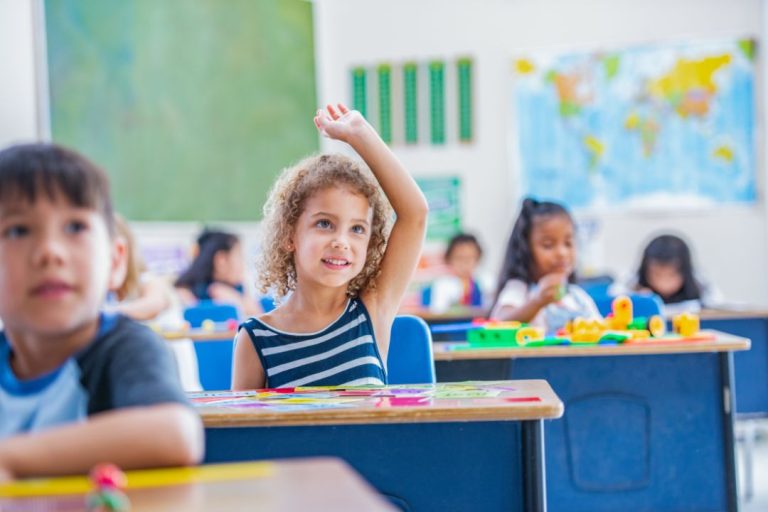
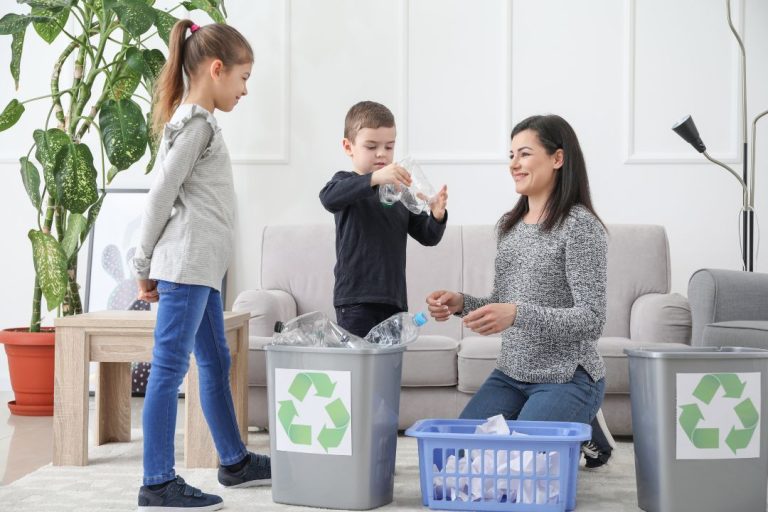

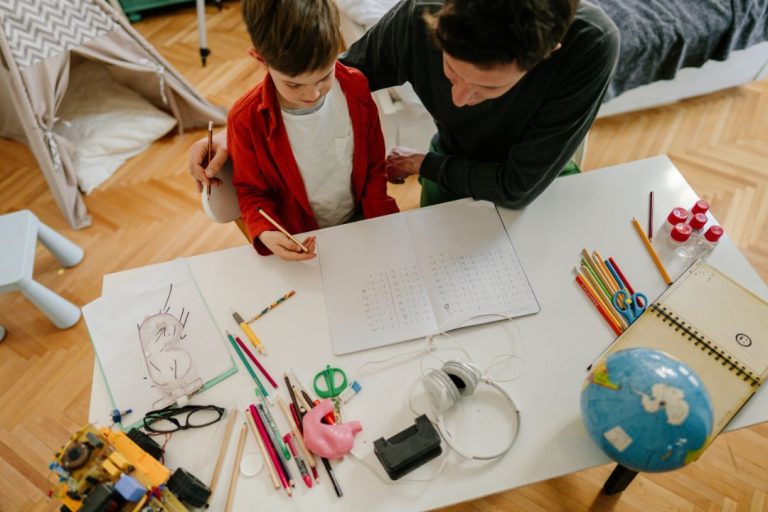
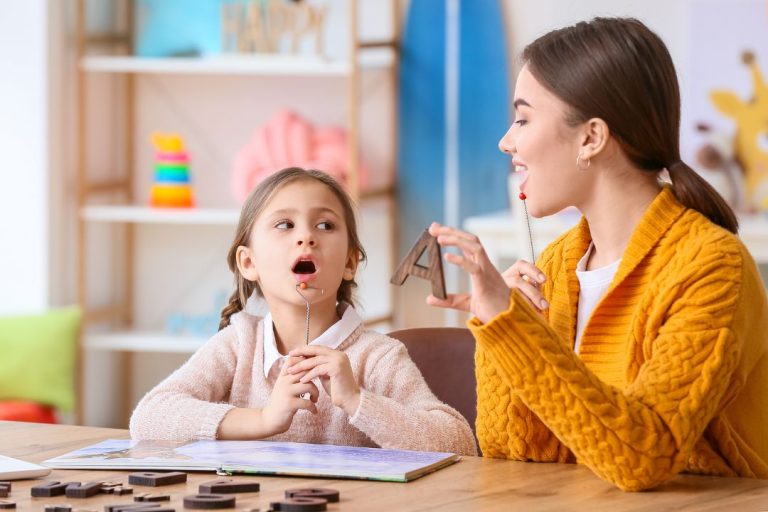
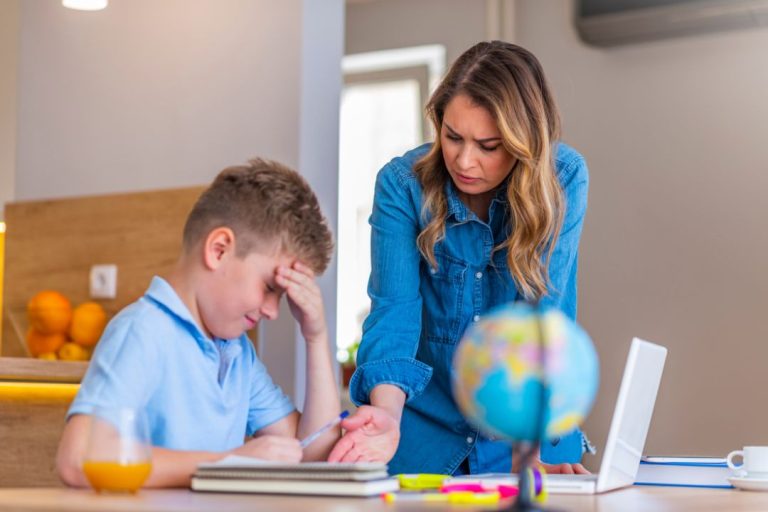
One Comment